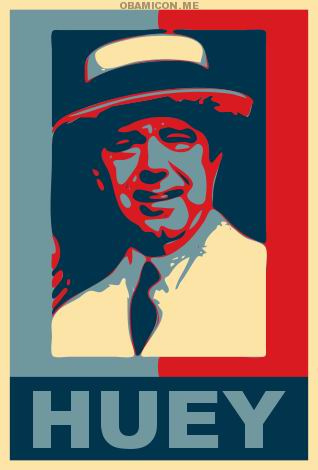
When hungry, eat. When thirsty, drink. When tired, sleep.
― Attributed variously to Baizhang (720-814), Tanxia Tianran (736-824), Huihai (788), Linji (867), or Bankei (1622-1693)
I am against imperialism, be it French, British, US or Chinese. I am not an ‘anti-imperialist’, since that is a political position supporting national liberation movements opposed to imperialist powers.
I am (and so is the proletariat) against fascism, be it in the form of Hitler or Le Pen. I am not an ‘anti-fascist’, since this is a political position regarding the fascist state or threat as a first and foremost enemy to be destroyed at all costs, i.e. siding with bourgeois democrats as a lesser evil, and postponing revolution until fascism is disposed of.
—Gilles Dauvé
I’m going to start a new philosophical movement while I wait to learn whether this country elected the corporatist-globalist-multiculturalist or the nativist-isolationist-populist to be president. It’s like waiting to hear whether the terminal diagnosis is heart failure or cancer. Or the COD is death by firing squad or death by lethal injection. Either way, it’s not good. As for my philosophical movement, I think I’ll call it de-identity.
The germ for my de-identity philosophy started when I took a writing workshop from Cary Tennis who used the Amherst Writers & Artists method developed by Pat Schneider. The AWA appropriated writer William Stafford’s aphorism—“A writer is someone who writes”—and built it into a writing methodology that emphasizes spontaneous writing techniques employed in a group process unencumbered by criticism or deadlines. The whole experience was a little too hippie-dippy-new-agey for my tastes and not at all conducive to honing the craft of writing. So I was glad when Cary developed the idea of the Finishing School, which helped me finish rewriting my second novel.
The phrase “a writer is someone who writes” remains troublesome for me however, not the least because it’s a tautology that means little and tells us less. A dancer is someone who dances. A policeman is someone who polices. A bricklayer is someone who lays bricks. These statements are not just self-evident, they are redundant. Am I a writer if all I do is write a grocery list every morning? If I write the orders for the execution of prisoners on death row? If I write nonsensical word salad screeds because I’m schizophrenic? And how long do I remain a writer once I stop writing? Five minutes? Twenty-four hours? Or once I earn the appellation, is it good for life? This all sounds rather hazy even as the phrase seems vaguely self-congratulatory.
Yes I can be harsh on the AWA’s inspiration and methodology even as I acknowledge that it works for some people to encourage them to write. I have similar reservations for the process and declarations of AA, including their signature “I’m so-and-so and I’m an alcoholic” statement, even while I grant that AA does work for some people to keep them sober. If nothing else, the placebo effect is quite real even though any “cure” remains elusive. My concern is with the identitarian claims that such statements foster and whether they hinder or help the efforts of those who make them. I think that the attempt to fix one’s identity—“I am a writer” or “I am an alcoholic”—in order to fix one’s problems—“I can’t write” or “I drink too much”—ultimately does more harm than good. Rather than face their declining writing abilities, Ernest Hemingway and Hunter S. Thompson committed suicide. Certainly, creative individuals like Philip Seymour Hoffman and Robin Williams were tired and depressed from constantly dealing with their self-admitted addictions and may have committed suicide as a consequence. Issues of declining health and mental problems combined with issues of addiction and creative obsession complicated matters for all four of these individuals, but this but doesn’t negate the point I’m hoping to make.
In line with Gilles Dauvé’s above distinction between opposing imperialism and being an anti-imperialist, or opposing fascism and being an anti-fascist, I rarely call myself an anarchist, a left communist, or even an anti-authoritarian these days. I support most, if not all the positions associated with these political identities at the same time that I reject the inclusive wingnuttery of anarchism, the vulgar dogmatism of left communism, and the kneejerk sectarianism of both. A similar attitude informs my comments in a previous column that sometimes a vote is just a vote. I’ve voted in the Peace and Freedom Party primaries much of my adult life, which doesn’t make me a leftover 60s Leftist. I voted for Barack Obama for president both times around, which doesn’t make me a Democrat. And I voted for Bernie Sanders, which doesn’t make me a democratic-socialist.
Defining a political identity based on voting, or even electoral politics, is ludicrous because that’s not all I do. To expand on a bumper sticker type of mentality, I vote but I also sign petitions, write letters, demonstrate, protest, commit civil disobedience, and riot. Pointing out the broad range of my political involvements is one way of de-indentifying with any one particular political activity, but it doesn’t actually decontextualize me and my politics. Quite the opposite. If I sum up all my individual political tactics into a personal political whole, I arrive at an overall political strategy, that being of an independent-minded, left-of-liberal kind of person. What I’m after instead is what I alluded to above in discussing writing. I’m trying to be overly literal with the phrase “a writer is someone who writes.”
I am a writer only when I write. I am a reader only when I read. I am a critic only when I criticize. I am a voter only when I vote. You get the idea.
It’s one of the flip sides of the Zen saying at the top of this column. And it has some interesting implications. A tongue-in-cheek Zen aphorisms I like is “don’t just do something, sit there” which flips a common saying. When I sit zazen, my intent is to be mindful, to be here now, to be in the moment. So if I’m doing nothing, I’m being nothing. At the moment I sit, my intention is to have no ego. My intention is to have no identity.
And I bet you thought I was going to rail against identity politics.
MY PREDICTIONS
I’m one for four on my electoral predictions, the same odds according to Nate Silver that the Cubs had of winning the World Series or that Trump had of winning the election. Or, more precisely, one for three, with one that doesn’t count. I predicted that Trump and Clinton would win their respective primaries, but I was wrong about everything else. There were no riots at the RNC, indeed there was much more action outside on the streets and inside on the convention floor at the DNC. I certainly was wrong when I thought Clinton would squeak by Trump to win the presidency. And it really doesn’t matter how Gary Johnson did as he was incidental to November 8th’s outcome.
The big news is that Clinton might have won the popular vote, which is still to be determined, but lost to Trump in the electoral vote. I’ll wait until next column to do a more thorough analysis, but for now, a couple of points. Michael Moore early on predicted that the anger and alienation felt by America’s white working class, especially in the midwestern Rust Belt, was so intense that Trump was likely to win if the Democrats didn’t take them into account and do something dramatic. And Nate Silver, whose prediction metrics based on crunching poll numbers, had Clinton leading Trump at around three points just before the elections, with the caveat that three points is well within the margin of error. So while Silver said: “In an extremely narrow sense, I’m not that surprised by the outcome,” he also said: “But in a broader sense? It’s the most shocking political development of my lifetime.” I echo his sentiments.
Now I need to practice some of that detachment I try to cultivate sitting zazen.












